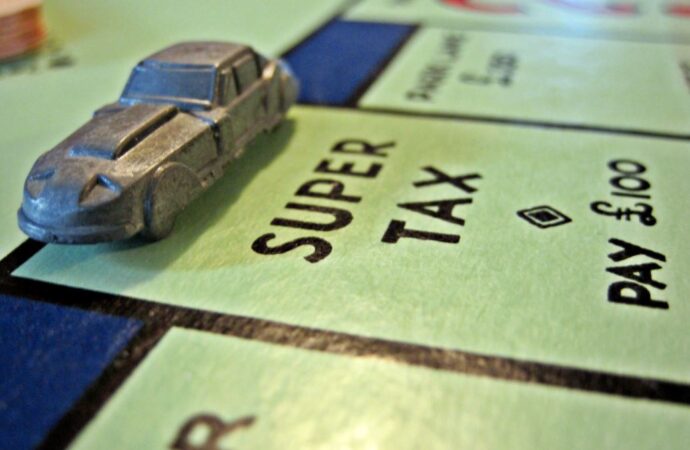On April 13th I sent a whopping check to the federal government and a lesser one to the government of Virginia. The total of these two checks equaled about 25 percent of my income.
Throw in sales tax on food and goods, the tax on gasoline and heating fuel, the property tax I pay through my rent to my landlord, sundry other taxes, and the money I now pay annually for a business license—yep, you read that right, a guy sitting at the dining room table tapping a keyboard is a business—and I’m guessing I pay 35-40 percent of my money to local, state, and federal government. Throw in the hidden tax of inflation, which has risen now to staggering levels, and I’m probably waving goodbye to 50 percent of my earnings.
That’s interesting, because as several online commentators point out, a medieval serf paid his lord between 25 percent and 33 percent in labor or in crops. Most of us, particularly those in the dwindling middle class, shell out more than did those European peasants to their masters through the many hidden taxes that Americans pay, the writer of “Become a Serf: My New Life Goal” writes at Wealthy Diligence. Way back in 2001, Paul Craig Roberts made a similar argument in The Washington Times, arguing that such high rates of taxation essentially strip us not only of our money, but of our liberties.
What particularly roils those of us who pay outlandish tax rates are the governmental polices that gobble up this money. When I look, for example, at the multiple failures of the present administration—and for that matter, the administrations of many years past—I think my money might be better consumed by tossing it into a bonfire in the backyard. At least that way, I wouldn’t be pitching my bucks into failed and expensive enterprises.
It should also infuriate us that every spring we must spend our time and money either laboring on our own taxes or paying someone else to do the calculations for us. In my own case, for instance, I did use a tax service. When that process ended, I received for my records a packet containing almost 50 pages of forms.
Of course, one reason for my high income tax rate is that I have almost no deductions. I own no property, my children are long grown and gone, and for personal reasons I don’t write off the work place where I write.
A second reason is my own lack of interest in finances. Doubtless, the ways and means exist where I might slash some of these government thefts, but unfortunately the interest just isn’t there. In my younger days, when I’d go to parties composed mostly of homeschool parents, a curtain descended in my brain as soon as the other dads began talking about real estate or property values, and I heard not a word. When it comes to my finances, I guess I probably don’t live in the real world.
Ah well, enough grousing. The day after I mailed out the checks, my daughter called to make sure I wasn’t depressed by paying out such a chunk of money. “No,” I said, and then told her that sometimes I get depressed by the ugly mess in our country and worry about what dire events are in store for my grandchildren, but April 15th,Tax Day, never depresses me. I always know what’s coming.
This year I am putting into place one new strategy. I intend to keep strict track of the mileage on my car, making sure that every out-of-town trip I take includes interviewing some person or seeing some attraction I can incorporate into my writing. Moreover, every time I go to town to work in a café or to do some research in the library, those trips will be recorded in my travel log.
It’s time for this serf to take a stand, however small.
—
Image Credit: Flickr-Images Money, CC BY 2.0
1 comment















1 Comment
John E Staddon
April 28, 2022, 12:52 pmAmen to this! The US tax system is a disgrace in many ways, but the personal costs it imposes — the time it wastes, the attention it demands for self-defense — is probably its worst feature. Politicians ignore the issue, perhaps because so many voters pay no tax and/or receive tax-paid benefits.
REPLY